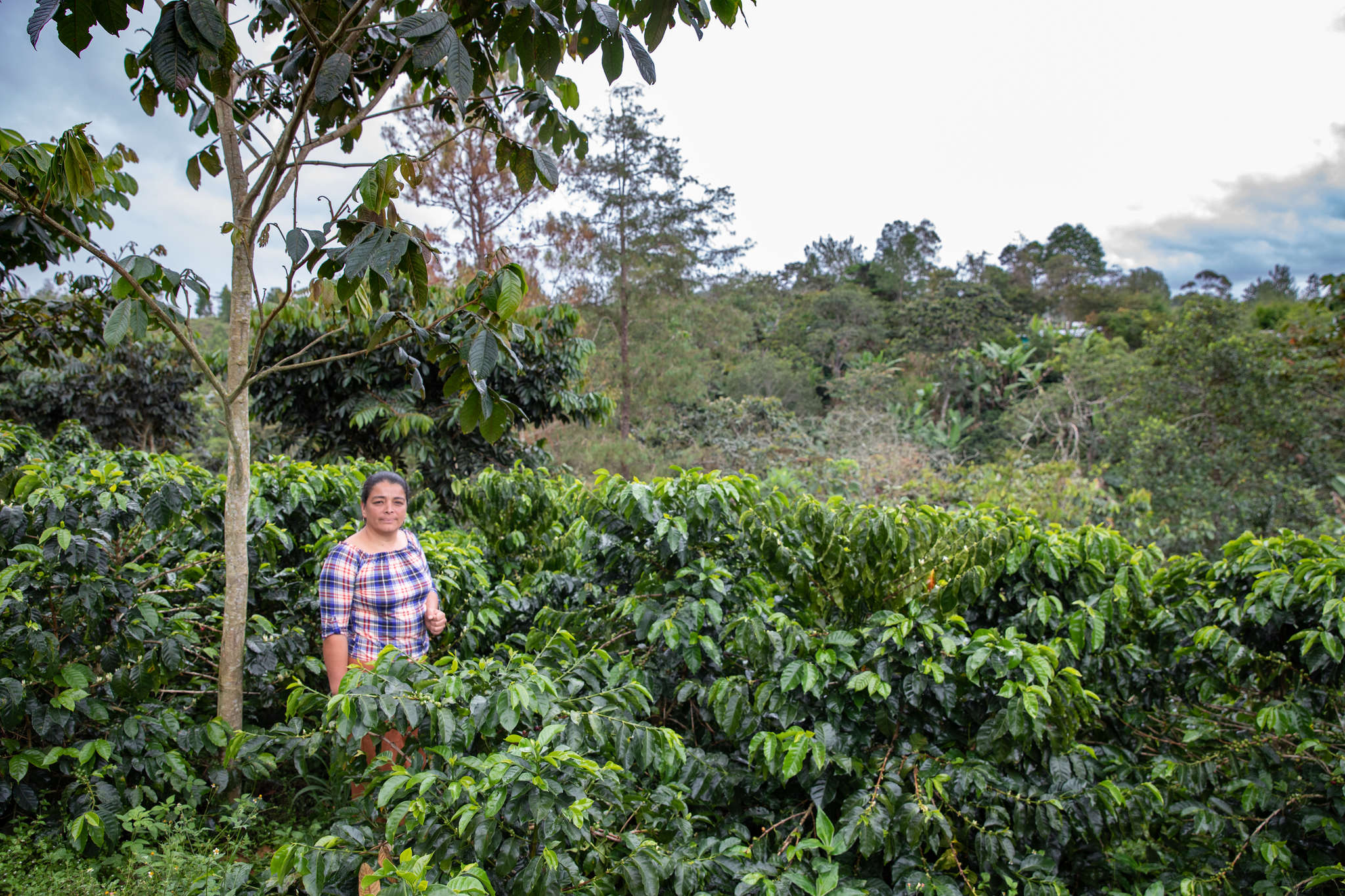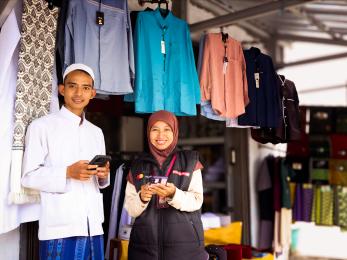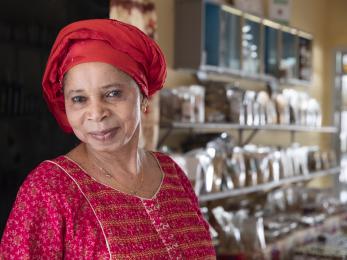A sweet business: Cocoa brings new hope to Liberian farmers
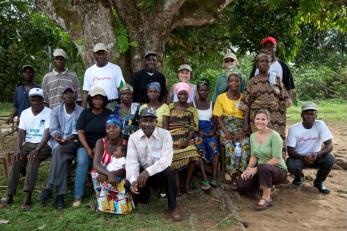
Liberia is a lush tropical rainforest, just the right climate to grow cocoa beans. And before the country’s two civil wars, it did just that.
Farmers tended cocoa trees and sold the beans for export on the world market. But the long years of conflict decimated Liberia’s cocoa industry. Because they couldn’t farm cocoa for 14 years, a whole generation of cocoa farmers lost the knowledge they once had. What little cocoa they did grow was poor quality, and yields were low.
“The people who used to grow cocoa were killed or displaced during the war,” said Mercy Corps trainer and technical advisor James Kiadii during a visit we made to the cocoa farm in November. “Now there aren’t many people who know how to farm cocoa correctly. The younger generation needs to re-learn what the older generation once knew.”
Mercy Corps has been investing in the revitalization of Liberia’s cocoa farming industry, with support from our own start-up arm — the Phoenix Fund — as well as the Aspen Institute. We have been working with the Liberia Produce Marketing Corporation to rehabilitate an 80-acre cocoa farm in Grand Bassa County, helping farmers re-establish it as a new business.
Clearing the land
First, we hired workers to clear land that became overgrown during the wars, a cash-for-work approach that infused much-needed funds into the local economy. We’re showing farmers — women and men — how to establish and maintain a plant nursery, introducing new varieties of cocoa trees and improved agricultural practices including pest control. With the skills they learn, farmers are growing their own cocoa seedlings so they can rehabilitate their own farms.
The farmers are learning how to inter-plant banana trees between their rows of cocoa seedlings. The bananas provide the shade young cocoa trees need while they’re getting established, as well as a valuable cash crop in the four to five years before the cocoa trees are productive. Once they’re big enough, the banana trees are cut down so the cocoa trees can get the sunlight they need in order to thrive. Mature cocoa trees continue to bear fruit for 25 years.
Higher-quality beans
Cocoa beans are harvested at the end of the rainy season, and post-harvest processing is a critical step. Mercy Corps is showing farmers better methods of fermentation and drying that yield higher-quality beans.
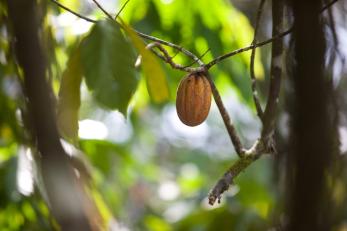
We’re teaching farmers how to build solar drying sheds, using a special kind of plastic sheeting, where the beans dry faster and more thoroughly than they did the old way, simply laid out in the sun. Before the introduction of the solar sheds, residual moisture in the cocoa beans kept farmers from getting top prices for their crops.
Mercy Corps also is working with vendors of tools and seeds to make sure they’re able to provide cocoa farmers with the supplies they need. In some cases, this involves building roads so that both farmers and vendors can get to the rural markets where buying and selling takes place. We’re also teaching the farmers how to get the information they need to obtain a fair price for their crops.
Mercy Corps’ long-term aim is to help the farmers become fully independent members of a smooth-functioning agricultural “value chain” — the entire growing, processing and sales cycle — without outside assistance.
Sharing learning and labor
On our recent visit to Grand Bassa county, we talked to the women and men who are participating in our program. A first group of 25 farmers has already graduated, and a second group of 25 farmers is now underway. These farmers are sharing what they’ve learned with their friends, neighbors and family members to establish new cocoa farms on their own land, traveling to each other’s farms to share labor and put the new techniques into practice.
“If you have 600 seedlings, you cannot plant them all by yourself,” notes Mercy Corps program coordinator Emmett Freeman. “When the farmers work together, it’s better — and faster.”
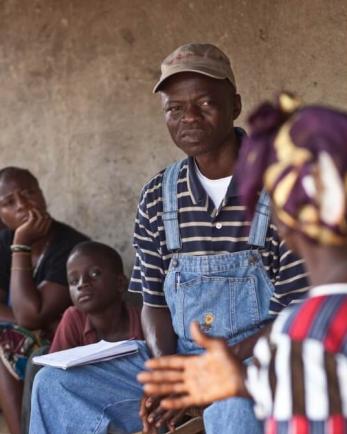
Connecting to buyers
While not all the cocoa trees are mature yet, the Mercy Corps program is already bearing fruit. We have helped the farmers organize into cooperatives that now have access to credit for seedlings, fertilizers and solar plastic. The coop is building a central warehouse to properly store — and preserve the value of — the dried beans. Most importantly, the co-op now connects directly with buyers to negotiate fair prices.
Cocoa exporters, who sell directly to chocolate manufacturers, are now willing to make the long trip over bumpy dirt roads to visit the farm and to grade and purchase the better-quality cocoa. That means farmers no longer have to carry the heavy bags of beans to market to meet with buyers.
And of course, they’re earning more. Before the Mercy Corps training, area cocoa farmers earned US$45 per 50-kg bag. Now, they’re receiving US$55 per 50-kg bag.
“If the cocoa is not graded, the farmers can be cheated,” says Kiadii. Before these relationships were established, all the beans were considered to be of a single (low) grade.
Looking ahead, Mercy Corps hopes to see Liberian cocoa farmers take the final step and turn their own cocoa beans into the powder that’s used for chocolate manufacture. Keeping the added value of a finished product in-country will provide another much-needed boost to the recovering cocoa industry.
In a country that’s in genuine need of sustainable businesses that create living-wage jobs, developing a complete seed-to-powder cycle will be a sweet finish indeed.
